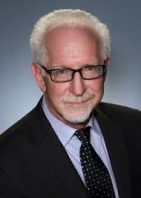
The National Radio Hall Of Fame announced its 2018 inductees last week. The list of ten men and women includes nine radio hosts. The tenth inductee is the first-ever non-broadcaster, Fred Jacobs. Fred was Program Director of WRIF/Detroit in the early 1980s before hanging out his shingle as a radio consultant. It was in that role he created the classic rock format, which still thrives today with great ratings success in dozens of markets — sometimes identified as “classic rock,” sometimes as “classic hits.”
But I know Fred for another achievement.
In mid-August, 1986, I became the morning man at WIOQ/Philadelphia. It was an awkward fit, and it got worse about six weeks in when Howard Stern, then doing mornings at WXRK/New York, began simulcasting his show on WYSP/Philadelphia. My bosses panicked, and decided that since Stern played no music, that’s all they wanted me to do — keep the talk to an absolute minimum and just play the tunes. I argued that Stern’s success was an argument in favor of personality radio, and that my own track record was proof that a morning show could get ratings without abandoning that aspect of the show. Essentially, I was trying to get them to allow me to do what I do best, which had worked for years at my previous stations. They didn’t buy it, and handed down the minimum-talk edict.
I went home incredibly depressed. Suddenly, for the first time, I was stuck in a radio job I dreaded. Slogging into the studio the next day at 6am felt horrible, and I walked out at 10am as down as I’d ever been. The only positive was that I didn’t have to wake up as early to prepare for the show, because I had no opportunities to discuss anything on the air.
That’s when I remembered a lunch I’d had with Fred the year before while I was at WYNY/New York. I hadn’t known him, but he’d called me out of the blue just to sit down and talk. Little did I know he was laying the groundwork for the future.
On that miserable October day in Philadelphia, I called Fred at his office. His secretary answered and said he was out of town, but she could take a message. I replied, “Do you have one of those pink While You Were Out pads?” She did. I continued, “I’d appreciate it if you’d write down my name and number and, under that, write — in all caps — HELP with three exclamation points.” I heard her say, “Uh-oh, that doesn’t sound good, but I’ll give him the message next time he checks in.”
Late that afternoon, my phone rang and it was Fred, saying my call for help was the most alarming message he’d received that day. He asked what was up. I explained what was happening, to which he replied, “Well, this is perfect timing. I have a client that happens to need a morning man with exactly your skills. In fact, they’ve tried the nothing-but-music morning approach, and the ratings in that daypart trail the rest of the station. Let me call them and have them get in touch with you. I think this could be a good match.”
He was right. His client called me, we talked, I went to visit, we liked each other, they wanted me to do my thing, and we negotiated a deal in just a few days. I convinced WIOQ to let me out of my contract. After all, they didn’t want someone on the air who so obviously didn’t want to be there. Then, a mere month and a half after my desperate phone call to Fred, I debuted on WCXR/Washington, the classic rock station he’d signed on eleven months earlier in the nation’s capital.
As Fred promised, it was a good match. Even when Stern added WJFK/Washington as his next affiliate, WCXR’s management never wavered from my approach. I tripled their morning ratings in the first year (the station’s revenue went up, too) and we were off to the races. I stayed there for five and a half years, and still remember it as one of the best gigs of my career.
Fred has been responsible for lots of stories like mine in the 35 years since he started his Jacobs Media consultancy. While the music on his client stations may be from decades ago, he keeps thinking about how technology is impacting radio. A decade ago, his company was one of the first to recognize the value of stations having their own smartphone apps, so he started a JacApps division. Five years ago, he joined me on my syndicated America Weekend show to discuss the connected car –a revolution that radio providers have to understand or be left behind (listen to that conversation here). He’s still highly-regarded throughout the industry and well-deserving of the honor of being named to the National Radio Hall Of Fame.
But to me, he’ll always be the visionary who gave me one of my biggest breaks. For that, I thank you, Fred.
